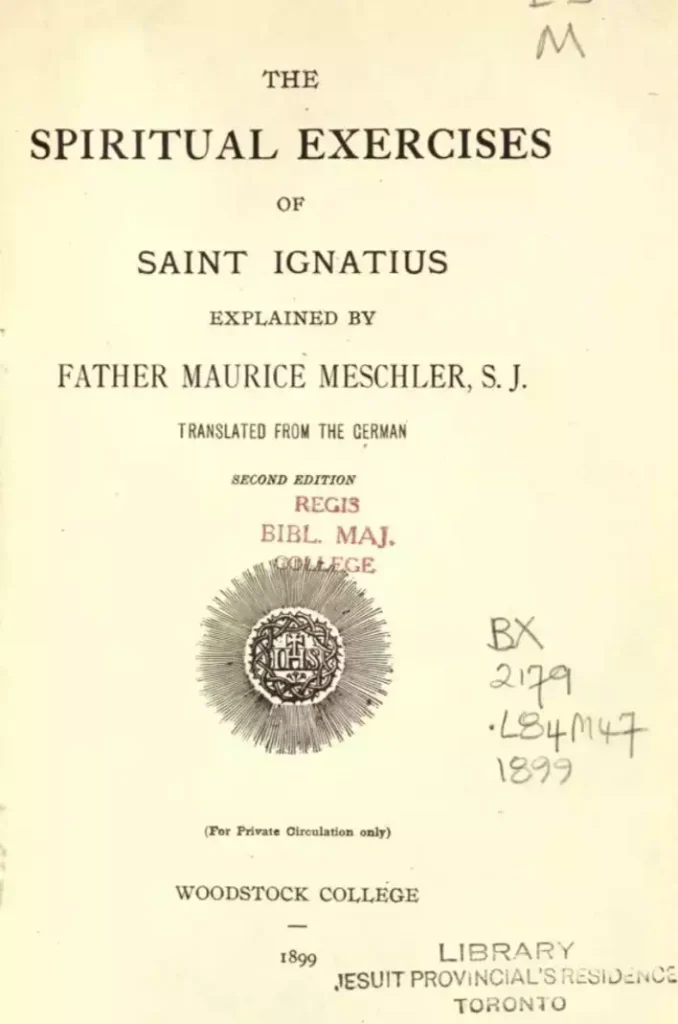Fasting | Νηστεία (Nēsteia) | Greek Verb
Etymology and Semantic Analysis The term ‘fasting’ in English, with its roots in Old English ‘fæstan’, denotes the act of abstaining from food for a spiritual purpose. Its Greek counterpart, ‘Νηστεία’ (Nēsteia), carries a similar meaning. In the New Testament, ‘fasting’ is predominantly associated with a religious act of abstaining from food to focus on […]
Spiritual Exercises of Saint Ignatius | A Profound Guide for Personal Transformation

The “Spiritual Exercises of Saint Ignatius” by Maurice Meschler, published in 1899, offers a transformative journey through the teachings of Saint Ignatius of Loyola. Meschler’s work stands as a significant contribution to the understanding of Ignatian spirituality, delving into the depths of self-reflection and communion with God. This text is not merely a guide but […]
Penance | Exploring Its Role in Christian Theology

Penance, in Christian theology, is a religious practice involving repentance for sins, confession, and the performance of specific acts to express contrition and seek absolution. Historically evolving within Christianity, penance has been a means for individuals to reconcile with God and the community. It often includes elements like prayer, fasting, and almsgiving, reflecting a sincere […]
Monasticism | Asceticism in Catholicism, Orthodoxy, and Coptic Christianity

Monasticism, a distinctive and venerable aspect of religious life, particularly in Catholicism, Orthodoxy, and Coptic Christianity, entails a commitment to asceticism and spiritual contemplation. Central to this way of life is the renunciation of worldly pleasures and pursuits, in favor of devoting one’s life entirely to spiritual work. Monastic individuals, often known as monks or […]
